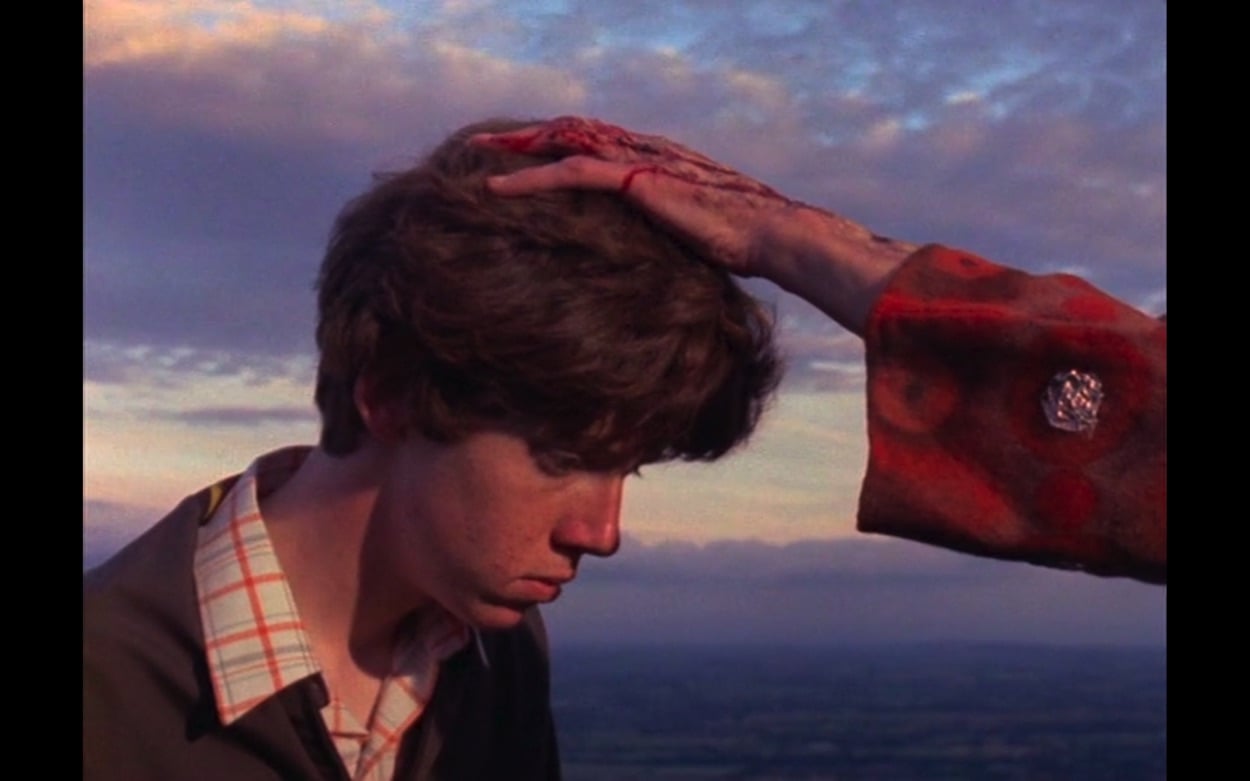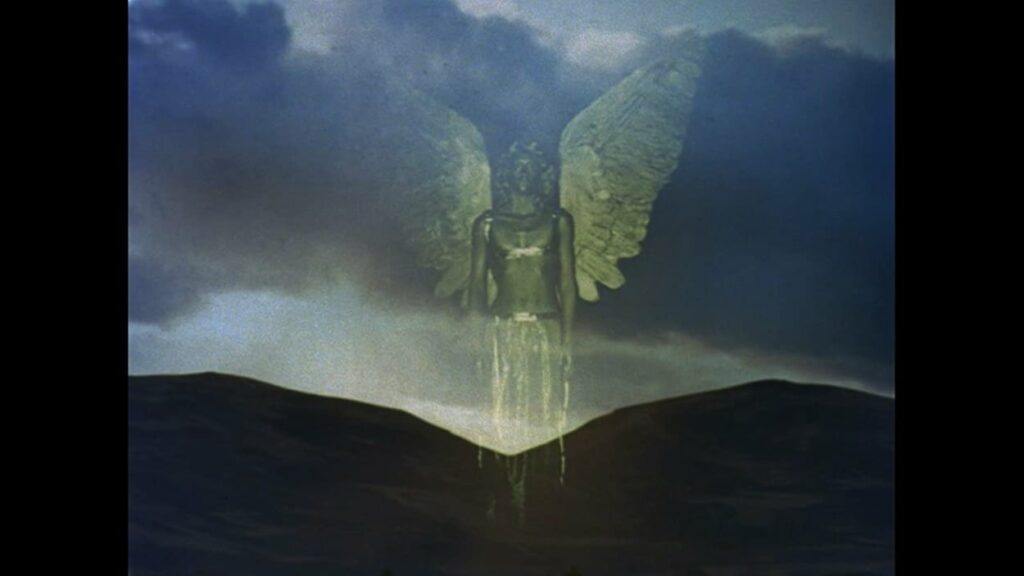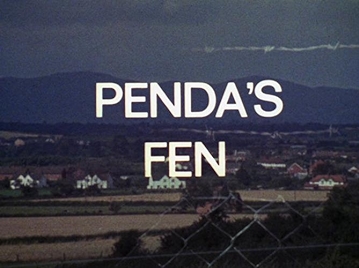As far as the work of director Alan Clarke goes, Penda’s Fen is an outlier. A strange take on folk horror, it’s become something of a cult in the decades since it was first broadcast in 1974 in the BBC’s long-running Play for Today strand.
Pre HBO and streaming, TV was predominantly a writer’s medium rather than a director’s. Even so, Clarke made a name for himself as a director in TV for two reasons: his focus on often punishingly gritty social-realist subject matter and his eye for talent. Prime (though relatively late) examples of this include TV features like 1979’s Scum, set inside a young offenders prison, where he gave Ray Winstone his big break (it was later remade as a theatrical feature also starring Winstone). In 1982’s Made in Britain, about football hooligans who live for weekend violence, he did the same favour for Tim Roth in his debut role.
But back to Penda’s Fen which doesn’t sit easily in the folk-horror slot, what with the bizarre left turns, digressions into fantasy and its examination of a “blood and soil” version of patriotism that’s right up the street of the neo-Nazis.
Spencer Banks was a busy actor in the 1970s and 1980s but hasn’t troubled screens much since, which is a pity because he is quietly and unassumingly brilliant as Penda’s Fen’s central character, a bookish, uber-patriotic, deeply Christian supporter of authority and tradition (teenage-schoolboy division) whose worldview is subjected to a series of shocks over the 90-minutes running time of David Rudkin’s screenplay.
Stephen (Banks) is a dweeb, a milquetoast who we meet in rhapsodic voiceover intoning “Oh my country. I say over and over: I am one of your sons, it is true; I am, I am. Yet how shall I show my love?” as Elgar’s Dream of Gerontius swells in a pastoral ecstasy on the soundtrack.
From this high opening point it’s really a case of a downhill slither for Stephen, as all his certainties are challenged. He’s exposed to the left-wing views of a local writer, Arne (Ian Hogg), is shocked to find his loins are stirred by rough local milkman Joel (Ron Smerczak), discovers his father, a Church of England clergyman, is, as far as the established church is concerned, a heretic, and then, to top it all, learns that he isn’t the pure-born Englishman he thought he was.
All this against a background of strange, fantastical developments – like the floor of the church cracking open as Stephen pumps out his beloved Elgar (the most English of the English composers) on the organ. While Stephen sleeps a demon crouches on his chest. There’s a bizarre interview with the long-dead Sir Edward (Graham Leaman) himself, during which Elgar reveals that he took inspiration for a key moment in the Dream from the whine of a dog – more certainties destroyed! And finally a visit from Penda, the ancient English king whose name gave Stephen’s village of Pinvin (Penda’s Fen in the old books) its name.
These odd avenues are what give the film its power. Just when we think we know where we are – with the left-wing playwright an examination of the strained labour relations of the era, for example – off things fly into a very non-Marxist realm, often on the wings of folklore and ethno-nationalism.
It’s Rudkin’s film but Clarke directs it with an assured and powerful directness, not relying too much on the special effects (which haven’t aged well, so that’s a good thing), the long takes giving the actors a chance to work up a collaborative head of steam.
There’s a fascination with the old ways, and Stephen’s journey away from modern expressions of nationalism to something more pagan has overtones of The Wicker Man (released the year before). Coming back to the 21st century, writer/director Mark Jenkin is also a fan, and his recent Enys Men charts a similar journey of an isolated researcher on a Cornish island in the 1970s into a kind of ethno-pagan pre-christian blood-and-soil originalism. The Nazis loved this stuff too and Clarke and Rudkin’s feat is to stay away from the racist end of that continuum and focus on a nationalism that’s mythic, fairytale-flavoured and benignly romantic. Cue more Elgar.
Penda’s Fen – Watch it/buy it at Amazon
I am an Amazon affiliate
© Steve Morrissey 2023


